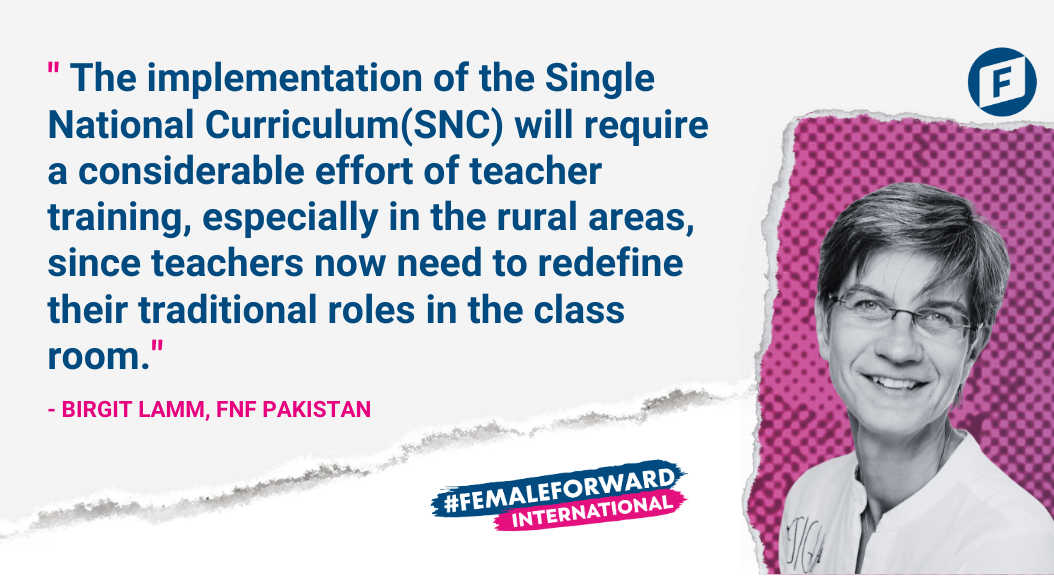#EducationDay2024
Single National Curriculum in Pakistan

Twitter Post Quote by Birgit Lamm on SNC on #InternationalDayofEducation2024
© Friedrich Naumann Foundation for Freedom - PakistanFollowing the victory in the 2018 general elections in Pakistan, Prime Minister Imran Khanʼs government has initiated an education reform process under the slogan »One Nation, One Curriculum , which is supposed to eliminate educational disparities by means of the new Single National Curriculum (SNC). This article analyses the approach taken by the Government of Pakistan with reference to the constitutional values and provisions provided by the 1973 Constitution and reviews its implementation potential within the complex socio-economic and political realities of Pakistan.
Below are some conclusions from the paper which can be read in its entirety at the following link
- The SNC has been intended to end social divisions through standardized education in terms of content, teaching methods, and assessment on a national level. However, this initiative by the national government deviates from the responsibilities of the provinces in educational affairs as laid down in the 18th Amendment of the Constitution. Currently, only the province of Sindh is openly challenging the SNC on these grounds, but this unclear situation carries the risk of future debates among different tiers of government, thus, putting the nationwide implementation of the SNC in question.
- The new SNC has strengthened religious education and Islamic content compared to the national curriculum of 2006. While the SNC gives the students of five religious minorities the possibility of specific religious education and, therefore, at least formally strengthens their fundamental right of receiving teaching in their own religion (Art. 22), the SNC also promotes a considerable amount of Islamic content in compulsory scientific subjects which all students have to study regardless of their religion.
- The SNC not only introduces new textbooks but also new teaching methods. With respect to new pedagogics, the SNC intents to "move away from rote memorization & focus on Project, Inquiry and Activity Based Learning". It further emphasizes that the "SNC focuses on development of analytical, critical and creative thinking through a more activities based approach rather than static teacher centric learning". This will require a considerable effort of teacher training, especially in the rural areas, since teachers now need to redefine their traditional roles in the class room.
